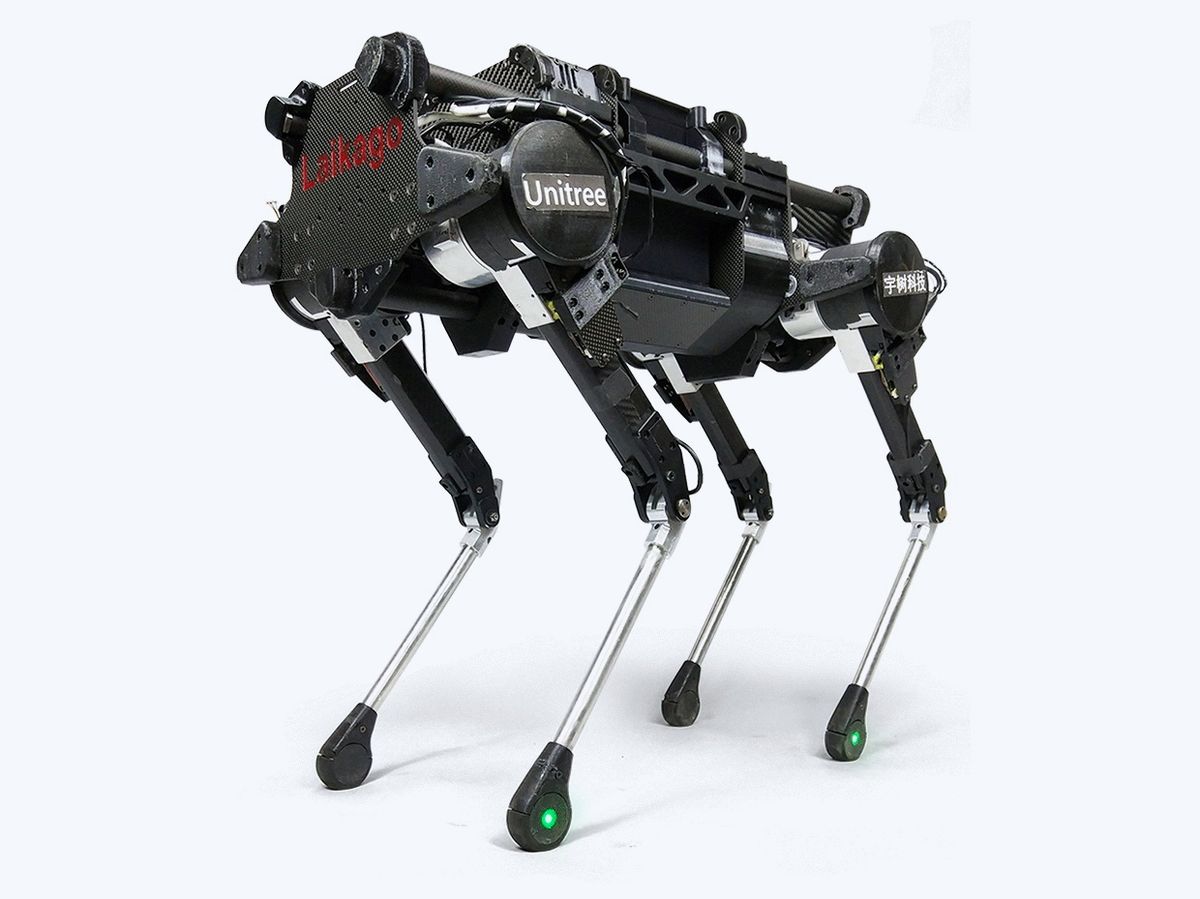Of all the legged robots built in labs all over the world, few inspire more awe and reverence than Boston Dynamics’ quadrupeds.
Chinese roboticist Xing Wang has long been a fan of BigDog, AlphaDog, Spot, SpotMini, and other robots that Boston Dynamics has famously introduced over the years. “Marc Raibert … is my idol,” Wang once told us about the founder and president of Boston Dynamics.
Now Wang, with funding from a Chinese angel investor, has founded his own robotics company, called Unitree Robotics and based in Hangzhou, outside Shanghai. Wang says his plan is making legged robots as popular and affordable as smartphones and drones.
Unitree’s first robot is a four-legged robodog called Laikago, which the company is announcing this week. (The name comes from Laika, the Soviet space dog, which Wang admires as a symbol of “human exploration of the unknown.”)
Laikago is designed as a research platform for scientists and roboticists, but Wang hopes science museums and robot enthusiasts may also want one. With further improvements, the robot could also be used in applications like package delivery, he says.
As a grad student at Shanghai University, Wang and his adviser, Jia Wenchuan, built a quadruped with 3-degrees-of-freedom legs that could walk forward, backward, and sideways, and also over rough terrain.
Boston Dynamics’ machines served as inspiration, but Wang wanted to “make quadruped robots simpler and smaller, so that they can help ordinary people with things like carrying objects or as companions,” he told us.

For now Laikago can’t do much on its own. The robot is currently not autonomous and needs to be remotely operated, using a Wi-Fi-enabled controller. It doesn’t carry stereo cameras or lidar sensors, though users can easily integrate additonal modules, Wang says.
Unitree created the robot’s mechanical structure, control system, and motion control algorithms from scratch. It also designed custom motors, drivers, and force sensors for the robot.
Laikago will sell initially for between US $20,000 and $30,000, but Wang hopes to bring the price down with further refinements and higher volume.

Of all “tricks” Laikago can do, Wang’s favorite is the robot’s ability to remain stable in uneven surfaces, or when kicked. He was surprised by some of the motions the robot did to stabilize itself, including motions he did not explicitly program the robot to do.
“The actual performance is surprisingly good,” Wang says of the robot’s control algorithms. “Math is wonderful.”
Erico Guizzo is the director of digital innovation at IEEE Spectrum, and cofounder of the IEEE Robots Guide, an award-winning interactive site about robotics. He oversees the operation, integration, and new feature development for all digital properties and platforms, including the Spectrum website, newsletters, CMS, editorial workflow systems, and analytics and AI tools. An IEEE Member, he is an electrical engineer by training and has a master’s degree in science writing from MIT.


